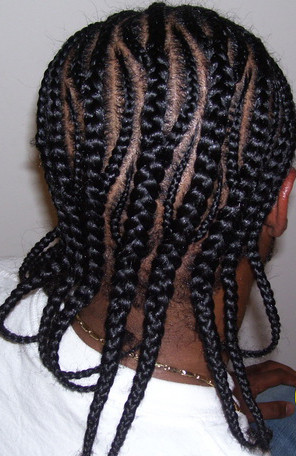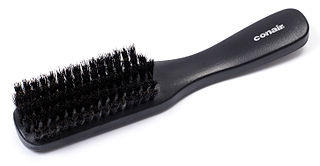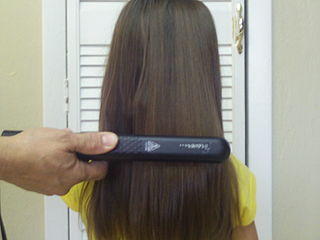6 Ways to Prevent Hair Loss With Diet and Lifestyle
Hair loss is a common cosmetic problem that is just as much a concern for women as it is for men. However, it primarily affects males. The majority of cases are due to genetic factors, hormonal alterations and changes in the body that are not related to any disease. It is difficult to prevent these types of hair loss although you could possibly slow it down.
Changing your diet and lifestyle could make a difference but only to a limited extent. It is more likely useful for hair loss related to dietary and lifestyle factors. Sometimes hair loss can be a sign of some underlying disease, either of the scalp and hair or affecting the entire body. Treating the underlying disease may stop the hair loss and even allow for regrowth.
Avoid Tight Hairstyles
The way you wear your hair can contribute to hair loss. Tight hairstyles that pull on the roots may contribute to balding. It is known as traction hair loss and is mainly seen with braids and buns. It can also happen with ponytails if you pull the hear tight and fasten it all day. This does not mean that you cannot wear these hairstyles. However, you should look at how long you keep your hair in these styles. Repeatedly braiding your hair, especially if it is very tight, can be a problem. So too is a tight bun or tight ponytails worn daily for months and years.
Tips
- Alternate your hairstyles. A tight bun or ponytail every now and then is unlikely to lead to traction hair loss.
- Speak to a professional hair stylist. By changing your current style you may not feel the need to wear tight styles.
- Balance appearance with practicality. Braids may look good but if you are experiencing hair loss then give it up.
Stop Pulling On Your Hair
Fidgeting with your hair can contribute to hair loss. Twisting, pulling or rubbing your hair repeatedly may put strain on the follicles and lead to hair loss. It is unlikely to happen with the odd incident every now and then. Some people are compulsive hair pullers. It may be seen as a sign of a shy or nervous disposition but can get to the point where it is an almost constant habit. A more serious disorder is known as trichotillomania where a person has an irresistible urge to pull on the hair and even pick it out. It leads to asymmetric hair loss.
Tips
- Opt for a hairstyle or head wear that will prevent you from interfering with your hair.
- Make a conscious effort to not interfere with your hair and ask close contacts to tell you when you do so.
- Seek medical help if you find that you have a compulsive disorder and cannot stop hair pulling.
Do Not Share Hair Items
Various infectious scalp diseases that can lead to hair loss may be spread through the sharing of hair items such as brushes and combs. Tinea capitis (scalp ringworm) is one such infection caused by a fungus. It can also arise with close contact even if hair items are not shared. Hair salons are another risky place. Since the same brushes and combs are used on many customers, a hair fungus from one person can easily spread to another. Reputable hair salons will clean these items properly between customers.
Tips
- Never share a comb or brush with others, not even close friends or family members.
- Shampoo your hair regularly. Poor hygiene is not a cause but can be a contributing factor.
- Ringworm infections can be spread from pets to humans. Get your pet treated if there is visible infections.
Take Care With Chemical Straightening
Chemical straightening or relaxers can lead to hair loss but most of these products are safe to use, if used as directed. The problem arises when people try to bypass the directions of use to get a better effect or longer lasting effect. Never add any other chemical to these products unless the manufacturer says so. Some hair salons may also be using very strong products that are not safe. The effects may be better but hair loss can be a consequence. A hair iron or electric straightener can sometimes be a better option although the effects are not always as long lasting.
Tips
- Only purchase products from reputable manufacturers and do not use a chemical hair relaxer more often than is advised.
- Stop using a chemical hair relaxer for a period of time to see if it is contributing to hair loss.
- Always go a reputable hair salon that is using safe salon-grade products for straightening hair.
Eat Right For Healthy Hair
Your hair, like your skin, is a reflection of your health and nutrition. Hair loss can occur with certain nutritional deficiencies. Iron, zinc, vitamin D and the B-complex vitamins are known to contribute to healthy hair. When there are deficiencies in these vitamins, hair loss may occur. There is no need to specifically focus on foods rich in these vitamins and minerals. A balanced diet will ensure that you are getting sufficient quantities of micronutrients which can help with healthy hair.
Tips
- Speak to a doctor and nutritionist if you notice hair loss after altering your diet.
- Certain multivitamin supplements may help but a healthy diet is still the best option.
- Prolonged fasting and strict dieting should be avoided as it can lead to deficiencies.
Manage Your Stress Levels
Stress has been linked to hair loss. It may be due to the changes in diet and even hormone levels during stressful periods in life. Or it could be related to other processes that are as yet unknown. Hair loss is more likely to occur after a period of sudden and intense stress – both physical and psychological. Periods of major illnesses such as conditions where there is a high fever and excessive weight loss may be associated with hair loss within days, weeks or even months. Thinning hair and even some degree of hair loss is seen with emotional shock, like the death of a loved one, or with long term psychological stress.
Tips
- Learn proper coping skills to manage with life stresses that are unavoidable.
- Stay away from people and situations that can be stressful, especially over prolonged periods.
- Know the physical limits for your body and try not to exceed it like when dieting.









